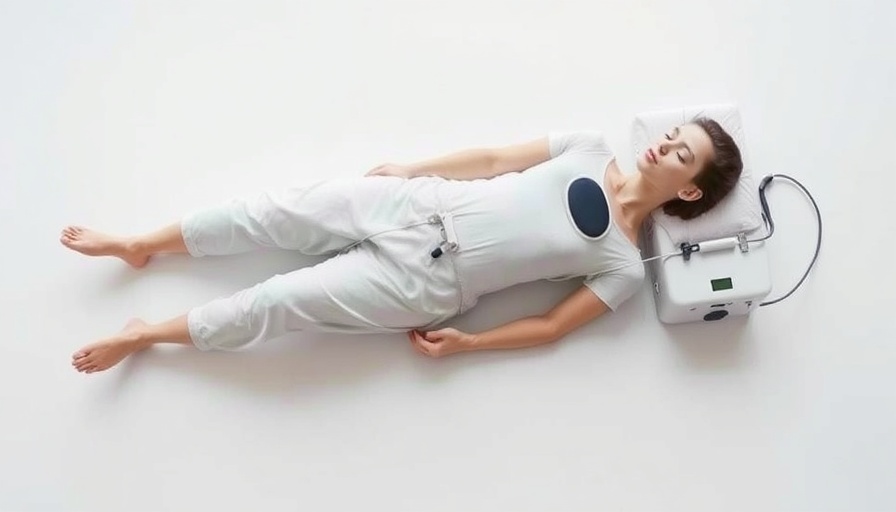
Understanding the Importance of Body Position in Sleep Health
For many people, a good night's sleep is essential for feeling rested and ready for the day ahead. However, sleep disorders like sleep apnea can interfere with this crucial time. Recently, Snap Diagnostics has introduced a revolutionary home sleep test that now includes a body position channel, giving families a powerful tool to track and improve their sleep health.
The Role of Body Position in Sleep Disorders
It might come as a surprise, but how you sleep can significantly impact the quality of that sleep. Many people aren’t aware that sleeping on your back could exacerbate sleep apnea—a condition where breathing stops repeatedly during sleep. Provided with a channel to monitor body position, parents can now assess how their sleeping habits may affect their children's sleep quality.
Innovations in Sleep Technology for Families
With the integration of this new feature in home tests, parents can gather important data without needing to leave the comfort of their homes. Traditional sleep studies often require overnight stays in sleep clinics, which can be daunting for children and unnecessary for assessing basic sleep health. By utilizing this modern technology, families can track sleep patterns related to body position, leading to better sleep hygiene and improved mental health outcomes.
Making Sleep Testing Accessible to All Families
Access to sleep studies has often been limited by geography and socio-economic status. This new at-home testing approach innovates within sleep medicine, breaking down barriers that might prevent families—especially those living in urban settings—from obtaining necessary assessments. This democratization of sleep health services acts as a vital step in addressing sleep issues that can lead to chronic conditions like obesity, diabetes, and even cardiovascular health problems down the line.
The Cultural Dimensions of Sleep
Understanding sleep is not just a personal or health issue, but it intersects with cultural practices and beliefs. For instance, many African cultures emphasize the importance of communal sleeping arrangements and family sleep routines that can influence sleep quality. As parents navigating both traditional practices and modern sleep science, being aware of these nuances can help improve bedtime routines and overall sleep duration and quality for their families.
Looking Ahead: Future Trends in Sleep Health
As technology evolves, we can expect more innovations in the realm of sleep health. The addition of body position monitoring is merely the beginning. Sleep tracking devices are becoming more sophisticated, and research into personalized medicine means families may soon have access to tailored sleep solutions. This end goal could include customized advice on sleep environments, bedtime routines, and even dietary adjustments to enhance sleep quality.
Final Thoughts and Next Steps for Parents
In conclusion, the addition of the body position channel to home sleep tests by Snap Diagnostics marks a meaningful advancement in sleep health. With better tools, parents can actively monitor their family's sleep and make informed decisions regarding sleep hygiene. As you consider these tools, think about your family's sleeping environment and routines. Are there changes that could improve your sleep quality? Making simple, informed adjustments can lead to a happier, healthier family.
For a deeper dive into sleep health for your family, consider discussing sleep habits with a sleep specialist. With the right support, your family can achieve better sleep, leading to better moods, improved productivity, and enhanced overall well-being.
 Add Row
Add Row  Add
Add 




Write A Comment